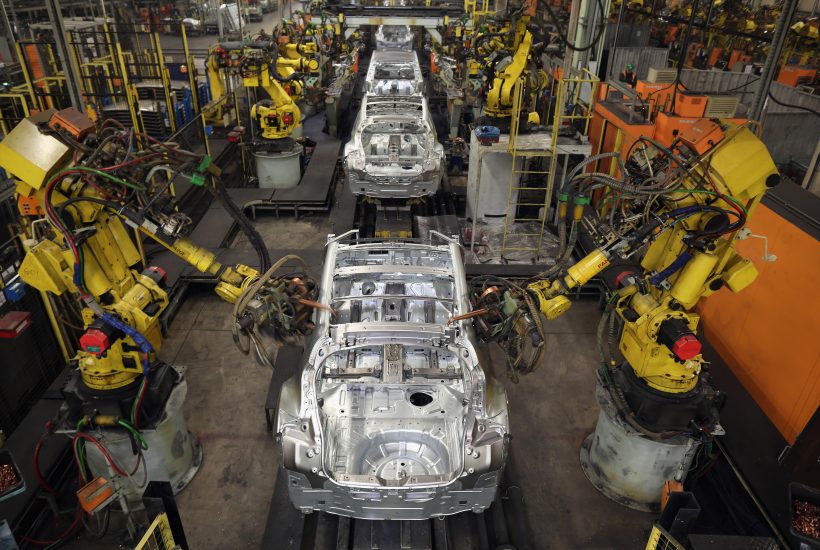I’m not a car-hater. Somehow, I’ve got two of them. I love driving. It’s fun, it’s powerful, it’s one of the best things about being born in the 20th century. But it’s getting seriously expensive.
Cars are moneypits, that we all know. Buying one is often an exercise in trying to guess which will cost you the least over the next five to ten years.
Petrol prices are rising again and likely to go up further as a result of higher oil prices and, of course, Brexit. A desire to avoid the slings and arrows of yo-yo petrol prices is one reason I seriously looked into getting an electric vehicle this year, instead of my diesel guzzling Ford Zetec (solid family car, ok). I dream of solar panels charging my house and my car so that in ten years, smuggo here is paying next to nothing for electricity and motoring while everyone else is rationing jumpers and car sharing. Alas, the electric dream is still too expensive for this young family.
But there is one cost in particular that seems to be almost totally out of control, making small rises in petrol costs look positively pathetic, and that is car insurance.
Confused.com says that car insurance prices have soared by a cortisol-rising 17 per cent annually – a rise of £109 on average over the past 12 months, taking the average policy up to £737 a year. A rise from 6 per cent to 10 per cent in insurance premium tax, introduced in the last Budget, is partly to blame.
Thankful for small mercies (this is not as high as its peak in 2011, when the average policy was more than £800), nevertheless, with most household finances perilously poised between ‘we are doing ok’ and ‘oh no, sell everything on eBay right now’, rises in essentials such as car insurance do smart.
Older people are facing steeper rises, according to Confused.com. The comparison site says that 66-year-olds are typically paying 28 per cent more for cover (at £434) than they did a year ago, while 17-year olds have seen premiums go up by a much smaller (but not insignificant) 9 per cent.
Older drivers may still take heart as 17-year olds typically pay £2,083 a year to insure their first wheels, seriously begging the question: ‘how are there any 17-year olds on the roads at all?’ To which the only answer must be: ‘very nice parents’.
Men pay on average £98 a year more than women. That gender gap has risen, despite EU laws ruling that insurers can’t discriminate based on gender.
Then there’s where you live. Scottish people pay the least, but have experienced the greatest increase regionally in the last 12 months. Those driving in inner London (or drivers’ hell, as I like to call it) pay the most, with average policies scraping above £1,000 a year.
Few things are as revealing about the character of different demographic groups across the UK than car insurance statistics. But one thing these stats reveal that is universally true is our national propensity to pay through the nose for the privilege of owning our own four wheels.
Looking at these figures in the context of average salaries, housing and food costs, paying this much to own your own car seems irrational.
I get that some people need them, I really do. Rural dwellers and older people who can’t walk half an hour to the nearest shop, fine. But if you live in a city, or a large town with a good bus and rail network, or unless you are so wealthy you don’t care how much your car(s) costs, then really, is rubbing shoulders with other humans on the bus that bad?
To anyone who feels deep down that they might not need a vehicle but just quite like it, I say this: look at the costs and think what else you could spend that money on. Then go to your nearest bus depot and pick up a timetable.
If your wheels are essential, all is not lost on the car insurance cost front. A new initiative launched this week by the insurer broker Sure Thing! and Nextbase, the dashboard camera retailer, will cut your insurance bill by 20 per cent – around £90 on average – if you install a dashboard camera on your car. Dashboard cameras on the Nextbase website start at around £50, so you should shave a bit off and enjoy a safer drive as well.
Adaptations that make driving safer, as well as the type of vehicle you drive, can make a big difference to insurance costs. Funnily enough, Moneysupermarket.com says that electric vehicle drivers, as well as saving on tax and things like the congestion charge, might also get cheaper car insurance. Whatever you do though, shop around. If it was just a few quid difference here and there, it might not be worth the bother. But with such huge variations in costs, it’s got to be worth a couple of hours.
Rebecca O’Connor is the founder of Good With Money and a former financial writer at The Times






Comments